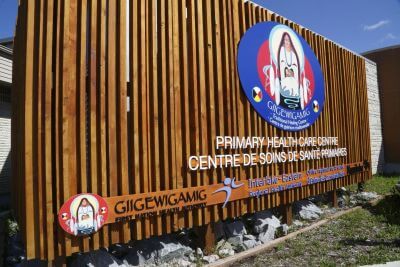Indigenous Health

IERHA realizes the need to change the view of Indigenous health within the region and understand the resiliency of this population as a key foundation on which to improve Indigenous health outcomes. The purpose of the region’s Indigenous Health Strategy is to guide the Interlake-Eastern Health Region and potential Indigenous and non-Indigenous partners in the region toward a shared understanding that addressing health inequities cannot occur in isolation, but rather through working together. This strategy dovetails with the strategic goals outlined in the regional strategic plan.
Indigenous Health Strategy
IERHA realizes the need to change the view of Indigenous health within the region and understand the resiliency of this population as a key foundation on which to improve Indigenous health outcomes. The purpose of the region’s Indigenous Health Strategy is to guide the Interlake-Eastern Health Region and potential Indigenous and non-Indigenous partners in the region toward a shared understanding that addressing health inequities cannot occur in isolation, but rather through working together. This strategy dovetails with the strategic goals outlined in the regional strategic plan.
The Truth and Reconciliation Commission of Canada: Calls to Action contains a number of actions specific to health. We are committed to incorporating the spirit of these Calls to Action as they relate to the culture, programs and services provided in Interlake-Eastern RHA. To that end, they are foundational to the Indigenous Health Strategy and IERHA’s overarching strategic plan.
Patient Services
Indigenous people receiving health care in the Interlake-Eastern RHA region can contact Director Indigenous Health, Adam Sanderson at [email protected] for assistance. Individuals have access to in indigenous health liaisons and regional indigenous elder knowledge keepers.
Robert Maytwayashing, Regional Knowledge Keeper, Indigenous Health
Robert Maytwayashing was raised on Lake Manitoba First Nation. He is fluent in Anishinaabaemowin (Ojibwe) and he is a pipe carrier, sweat lodge keeper and attends the annual ceremony of Sundance, amongst other ceremonies. Prior to becoming the regional knowledge keeper, Robert was Interlake-Eastern RHA’s Indigenous human resources development officer. Cultural awareness training for staff was among his responsibilities in addition to his work to establish a representative workforce within this region. In his current role Robert will be supporting facilities that currently do not have an Indigenous liaison. He can provide cultural support and language support for patients regionally when required.
Andrea Swan, Indigenous Health Liaison, Indigenous Health
Originally from Lake Manitoba First Nation, Andrea is fluent in Anishinaabaemowin (Ojibwe). As IERHA’s Indigenous health liaison working out of both Ashern and Eriksdale hospitals, she offers Indigenous patients and their families advocacy, navigation, interpretation and support on discharge planning. She provides information to help with understanding among patients and care teams and she works to bridge gaps in servicing Indigenous people’s needs. Andrea is a daughter of a residential school survivor.
Indigenous Health Committees
We’re always looking for new voices on the following committees. Reach out at anytime if you’re interested in participating.
1. Indigenous Health Advisory Committee
Advises the Board of Directors on matters affecting Indigenous people consistent with the Interlake-Eastern RHA Strategic plan, legislation, commission reports and other relevant sources. Interested applicants can email: [email protected] their name and contact information.
2. Indigenous Health and Aging Populations Steering Committee
Working to improve health outcomes, access and reduce health disparities. Visit the Steering Committee webpage for more information and to apply: Strategic Steering Committees
Giigewigamig Traditional Healing Centre
Giigewigamig Traditional Healing Centre is located in the Pine Falls Health Complex.

Giigewigamig Traditional Healing Centre opened to the public in Spring 2017. The addition was designed to provide better, more culturally appropriate health care services to families in Sagkeeng, Black River, Hollow Water, and Bloodvein and the surrounding Métis communities. The redevelopment provides space for traditional healers and elders, an additional nurse practitioner, a First Nation and Métis outreach liaison, a medical lab assistant and spaces for support services.
The First Nation communities of Sagkeeng, Black River, Hollow Water and Bloodvein came together to create the Giigewigamig (Kee-gay-ga-mik) First Nation Health Authority working group to manage program development of the new traditional healing centre at Pine Falls. “Giigewigamig” means “A place of healing,” in Ojibway which was named by the Rev. Ernest McPherson Senior of Black River.
The mission is to create a place in the hospital for loved ones to support family members who may be ill and seeking care in the hospital and:
- Offer a place where family can prepare traditional meals and medicine for loved ones in the hospital
- Provide access to First Nations traditions, culture, language, healing ceremonies, medicines, and teachings to provide holistic and natural care for all people
- Assist community members to coordinate spiritual, emotional, mental, and physical care that meets their needs
- Provide patient interpretation and advocacy
- Inspire a new standard of quality health care, and advocate for greater accountability to honour the Treaty Right to health through the jointly coordinated services of Giigewigamig, the Interlake-Eastern Regional Health Authority, the Province of Manitoba and Health Canada.






